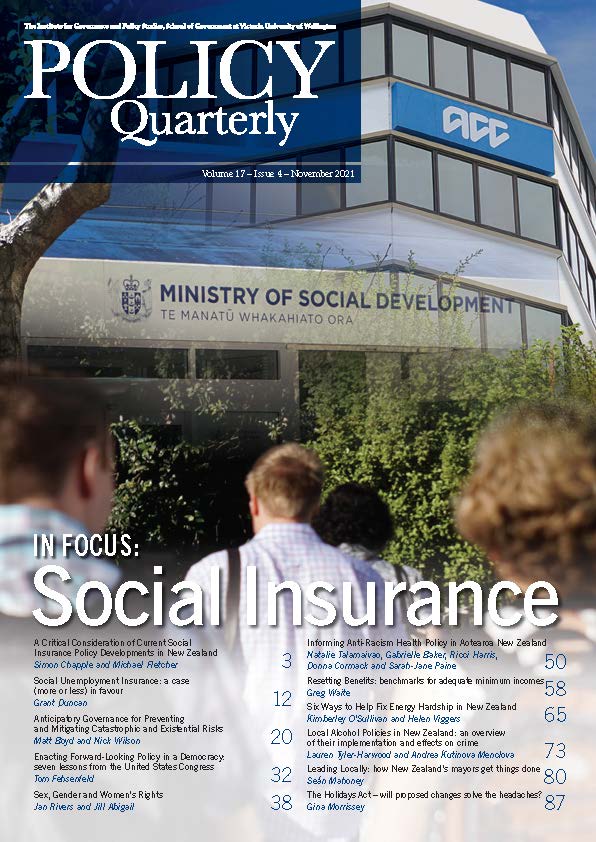Informing Anti-Racism Health Policy in Aotearoa New Zealand
DOI:
https://doi.org/10.26686/pq.v17i4.7319Keywords:
racism, anti-racism, institutional racism, discrimination, health, organisations, health policyAbstract
Racism is firmly established as a determinant of health and an underlying cause of ethnic health inequities. As an organised system, racism operates at multiple levels (including structurally and interpersonally). Racism and its many manifestations are breaches of international human rights obligations and, in the Aotearoa New Zealand context, te Tiriti o Waitangi. This article considers approaches to anti-racism in health and disability policy in the 30 years following the foundational publication Pūao-te-Ata-Tū (Ministerial Advisory Committee on a Māori Perspective for the Department of Social Welfare, 1988), which was one of the first government publications to name and call out the harmful impacts of institutional racism. The article then examines the ways in which government health and disability sector organisations have talked about and responded to racism at a national level since 1980. The results of this research urge a stronger organisational-level approach to antiracism in the health and disability system for more tangible results, requiring multi-level solutions, and transforming what is considered ‘business as usual’ in health and disability sector institutions.
Downloads
Downloads
Published
Issue
Section
License
Permission: In the interest of promoting debate and wider dissemination, the IGPS encourages use of all or part of the articles appearing in PQ, where there is no element of commercial gain. Appropriate acknowledgement of both author and source should be made in all cases. Please direct requests for permission to reprint articles from this publication to Policy-Quarterly@vuw.ac.nz.



